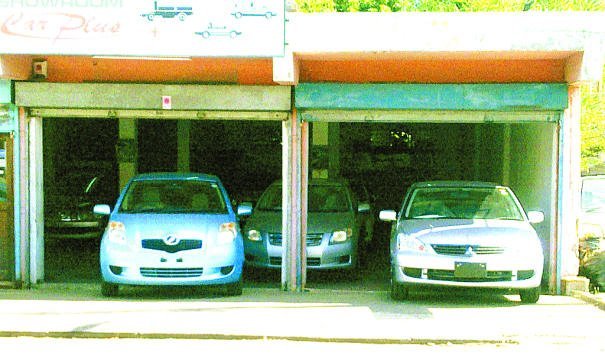Yen Depreciation - Zaid Ameer: "The 'recond' Japanese Cost Between Rs 15,000 and Rs 30,000 Cheaper"

It is said that Zaid Ameer, President of Imported Vehicles Dealers Association (DIVA). He added that members of his association have weaker yen apply directly to the selling price of second-hand vehicles from that date.
From its Rs 39 and Rs 40 aware of last year, the yen rose to Rs 33 in February, says our interlocutor. In addition to lower vehicle prices charged in Japanese yen, buyers benefit from lower on customs duties and VAT.
Same story at participating dealers of new Japanese cars. Michael Ng, Marketing Manager at ABC Motors, indicates that there is a general decline in imports based on the yen but everything depends on the arrival. It thus indicates that the decline of the yen will further enhance the competitiveness of Japanese cars that have always remained competitive even when the yen was strong. He added that more Japanese brands will dominate the automotive market in Mauritius. With a little over 40% in 2012, he said, the market share of Japanese brands such as Toyota, Nissan and Honda, among others, could greatly exceed 50%.
The same applies to second-hand vehicles which accounted for 23% of the car market in 2012 with Mauritius 5633 new second-hand vehicles registered at the National Transport Authority (NTA) in 2012. The upward trend of
38% in the sale of second-hand vehicles in January could be confirmed in the coming months.
The yen, which fell by 20% against the dollar since mid-November, declined further after the G20 financial leaders have pledged not to devalue their currencies. Some strategists suggest that the yen is likely to remain low even if the decline may lose momentum until it becomes clear who will take the reins of the Central Bank of Japan.
The yen will weaken a bit in anticipation of a more aggressive easing with the new management team at the Central Bank of Japan.
However, the Japanese trade deficit swelled to a record high of 1.63 trillion yen ($ 17.4 billion) due to energy imports and a weaker yen highlighting the cost of the policy currency depreciation. Thus, some analysts say that the trade deficit means that the yen may continue to decline.
Related News


